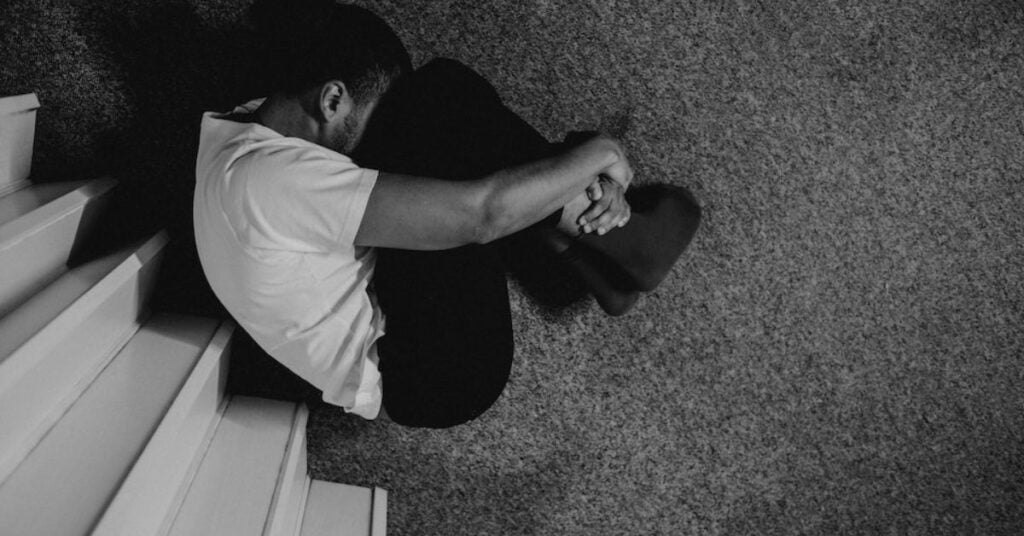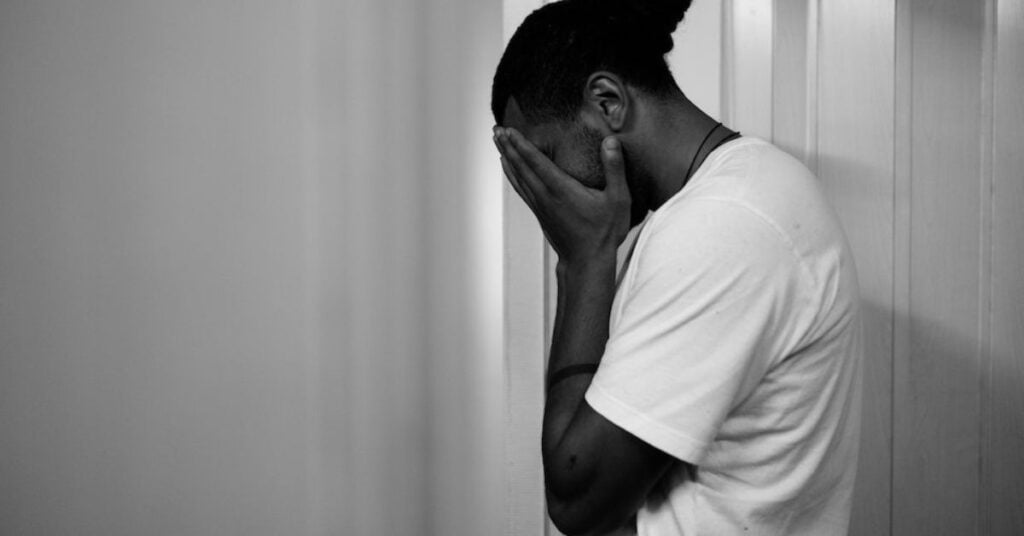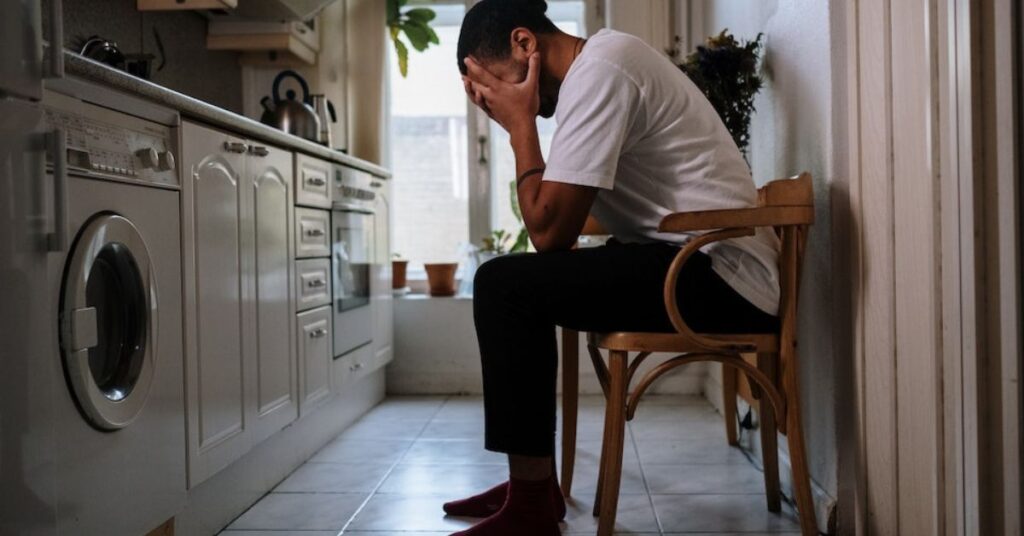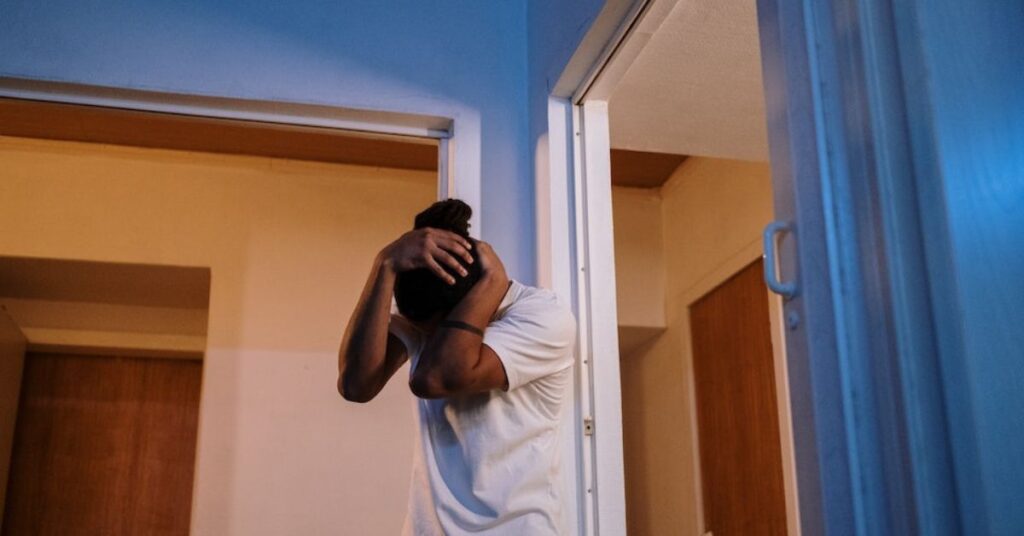
Table of Contents
Agoraphobia Test
Agoraphobia is a form of anxiety that can make a person fearful of and avoidant of circumstances that could lead to panic attacks, such as crowded areas, using public transit, or being alone outside of the house.
A complete assessment by a mental health professional, including a detailed review of the patient’s medical and psychiatric history, as well as a discussion of the patient’s symptoms and behaviours, is often required to diagnose agoraphobia. Agoraphobia cannot be diagnosed with a single test.
Self-report questionnaires and structured interviews are two tools that mental health specialists occasionally employ to aid in diagnosis. These evaluations should not be used in place of a professional assessment, however, as they are often only one component of a whole review.
I advise consulting a physician or mental health expert if you think you might have agoraphobia in order to receive a precise diagnosis and develop an effective treatment strategy.
Agoraphobia Test NHS
A variety of mental health treatments, including the diagnosis and treatment of agoraphobia, are offered by the National Health Service (NHS) in the UK.
Start by speaking with your GP if you think you might have agoraphobia (general Practitioner).Your doctor will inquire about your symptoms and, if necessary, refer you to a specialised mental health provider for more evaluation and care.
A range of techniques, such as psychological evaluations, self-report questionnaires, and structured interviews, may be used by the specialised mental health service to screen for agoraphobia. The best approach to get a precise diagnosis, though, is to have a professional evaluation from a licenced mental health practitioner.
The NHS offers a variety of treatment options for agoraphobia, including talking therapies like cognitive behavioural therapy (CBT) and exposure therapy, as well as medication where appropriate.
How to test for Agoraphobia?
Agoraphobia is a form of anxiety that can make a person fearful of and avoidant of circumstances that could lead to panic attacks, such as crowded areas, using public transit, or being alone outside of the house.
Typically, a full assessment by a mental health professional is required to identify agoraphobia. It might contain:
- Medical history: A evaluation of your physical health, including any illnesses and treatments, is included in your medical history to rule out any underlying physical reasons of symptoms.
- Psychological assessment: A discussion of your agoraphobia-related symptoms, thoughts, feelings, and actions constitutes a psychological assessment.
- Self-report forms: You could be required to fill out a self-report form to share more details about your symptoms and experiences.
- Structured interviews: Interviews with a systematic format, such as the Structured Clinical Interview for DSM-5, can be used by a mental health practitioner to determine whether a patient has agoraphobia (SCID-5).
It’s critical to bear in mind that the only approach to get an accurate diagnosis of agoraphobia is through a professional evaluation from a licenced mental health practitioner. I advise speaking with a physician or other mental health expert for a thorough assessment if you think you might have agoraphobia.

Agoraphobia Treatment Plan
With the help of both medicine and psychotherapy, anxiety disorders like agoraphobia can be successfully managed. According to the severity of the symptoms and the patient’s preferences, a unique treatment strategy will be chosen.
- Medication: Selective serotonin reuptake inhibitors (SSRIs), which include benzodiazepines, are anti-anxiety drugs that can aid with anxiety and panic symptoms.
- Psychotherapy: Talking therapies can assist people with agoraphobia in controlling their anxiety and overcoming their phobias. Examples include cognitive behavioural therapy (CBT) and exposure therapy.
- Exposure therapy: In order to lessen anxiety and boost confidence, exposure therapy includes systematically exposing the patient to the feared event in a safe and controlled setting.
- Cognitive behavioural therapy (CBT): This form of therapy aids patients in identifying and altering harmful thought and behaviour patterns that might be causing their agoraphobia.
- Therapies based on mindfulness: Therapies based on mindfulness, such as mindfulness-based cognitive therapy (MBCT) and mindfulness-based stress reduction (MBSR), can assist people with agoraphobia in controlling their stress and anxiety.
It’s crucial to locate a mental health expert with experience treating agoraphobia and to collaborate with them to create a personalised treatment plan. Many people with agoraphobia can successfully manage their symptoms and enhance their quality of life with the correct mix of medication and counselling.

Agoraphobic Lifestyle
It can be difficult and have a significant negative influence on daily activities to live with agoraphobia. Agoraphobic people may experience the following effects, as well as coping mechanisms:
- Avoidance behaviours: People who have agoraphobia may steer clear of locations or circumstances that make them feel anxious or panicky, like crowded areas, public transportation, or being alone outside the house.
- Social isolation: Avoidance habits can result in social isolation, fewer opportunities for meaningful interactions with others, and social isolation.
- Daily activities: Agoraphobia can make it difficult for a person to carry out daily tasks, such as getting ready for work or school.
- Mental health: Agoraphobia can be extremely distressing and raise the risk of acquiring other mental health issues including depression.
It’s crucial to seek therapy and collaborate with a mental health expert to create a care plan in order to manage agoraphobia and its effects on daily life. In addition to self-care and lifestyle modifications including exercise and stress reduction methods, this may also involve medication, psychotherapy, and exposure treatment.
Contacting support groups and establishing connections with people who are familiar with your situation may also be beneficial. A lot of people with agoraphobia may control their symptoms and enhance their quality of life with the correct combination of therapy and support.
Agoraphobia Techniques
People with agoraphobia can use a variety of ways to control their symptoms and get over their concerns. Here are several methods that are frequently used:
- Deep breathing: By soothing the nervous system and lowering heart rate, deep breathing can assist to lessen sensations of worry and panic.
- Progressive muscle relaxation: To assist ease tension and anxiety, the progressive muscle relaxation technique involves tensing and relaxing various muscle groups.
- Mindfulness: Yoga and meditation are two mindfulness practises that can assist people with agoraphobia in staying in the present moment and lowering their levels of stress and anxiety.
- Cognitive restructuring: This method entails identifying and altering unfavourable thought processes that may be causing anxiety and panic.
- Exposure gradually: Exposure gradually to the frightening circumstance might assist those with agoraphobia in overcoming their worries and gaining confidence. With a strategy in place and a network of support, this can be accomplished with the aid of a therapist or independently.
- Relaxation methods: People with agoraphobia may find it helpful to lessen their feelings of fear and panic by using relaxation methods including progressive muscle relaxation, visualisation, and guided imagery.
Working with a mental health expert will help you choose the methods that will work best for you and create a thorough plan of care that includes a variety of symptom management tactics. Many agoraphobic people can successfully manage their symptoms and enhance their quality of life by using the correct tools and support system.

Symptoms of Agoraphobia
Agoraphobia is a form of anxiety disorder defined by a dread of being in circumstances where it could be challenging or embarrassing to flee or where aid might not be available in the event of a panic attack. Some typical signs of agoraphobia include the following:
- Fear of panic attacks: Agoraphobics may have a strong dread of panic attacks or may actively avoid circumstances where they might have one.
- Avoidance behaviours: One of the most prevalent symptoms of agoraphobia is a tendency to avoid specific locations or circumstances, such as crowded areas, public transportation, or being alone outside the home.
- Anxiety: People with agoraphobia could feel extremely anxious or terrified in circumstances where they think they can’t get out or are trapped.
- Physical symptoms: People with agoraphobia may experience physical symptoms including sweating, trembling, or a rapid heartbeat.
- Social isolation: Avoidance habits can result in a lack of opportunity for meaningful interactions with others and social isolation.
- Everyday routine disruption: Agoraphobia can make it difficult for a person to go about their daily activities, including going to work or school.
It’s crucial to get professional assistance if you’re going through agoraphobia symptoms. Many people with agoraphobia are able to successfully control their symptoms and enhance their quality of life with the correct mix of medication, treatment, and support.
Top 5 ways of Agoraphobia treatment
Agoraphobia treatment includes the following 5 methods:
- For help with treating anxiety disorders like agoraphobia, ask your doctor for a recommendation for a mental health specialist.
- In-network mental health professionals that specialise in treating agoraphobia might be found by contacting your insurance company.
- Look for anxiety problem treatment centres that are specialised in mental health in your area.
- To learn more about the programmes and services offered by area hospitals and medical facilities, contact them.
- Look for online listings of mental health professionals, such as those maintained by the American Psychological Association (APA) or the Anxiety and Depression Association of America (ADAA).
It’s crucial to engage with a mental health provider you trust and who has experience treating agoraphobia. Many people with agoraphobia are able to successfully control their symptoms and enhance their quality of life with the correct mix of medication, treatment, and support.
Agoraphobia vs Social Anxiety
The anxiety disorders of agoraphobia and social anxiety disorder (SAD) are two separate but connected conditions. There are important distinctions between the two circumstances, despite the fact that both can induce strong dread and avoidance of particular situations:
- Fearful situations: Agoraphobia is defined by a fear of being in circumstances from which it may be difficult or embarrassing to escape or from which assistance may not be available in the event of a panic attack. Fear of embarrassment or judgement from others in social circumstances is a hallmark of social anxiety disorder.
- Behaviors of avoidance: People who have agoraphobia may steer clear of a variety of scenarios, including crowded areas, public transportation, and being alone outside the house. Specific social circumstances, such as public speaking or social interaction, may be avoided by those with SAD.
- Physical symptoms: People who have agoraphobia or SAD may experience physical symptoms including shaking, sweating, or rapid heartbeat.
- Impact on everyday life: Both agoraphobia and SAD can create significant anguish and disturbance in a person’s life by interfering with daily activities and routines.
If you are exhibiting signs of agoraphobia or SAD, it’s critical to get expert assistance. Many people with these diseases are able to successfully manage their symptoms and enhance their quality of life with the correct mix of medicine, therapy, and support.
Read More Articles:-
Polkadot Crypto Price USD Live 2023
agoraphobia test | agoraphobia test nhs | agoraphobia test uk | agoraphobia test online | agoraphobia test free | agoraphobia test buzzfeed | agoraphobia test online free | agoraphobia test australia | agoraphobia test anxiety | agoraphobia test indonesia | do i have agoraphobia test | social agoraphobia test | agoraphobia test idrlabs | online agoraphobia test | free online agoraphobia test | Best Agoraphobia test | Best Agoraphobia test 2023
